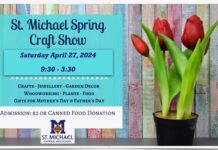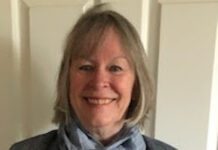It seemed best to some who know me that I leave North Grenville for a while. They’ll never find you in Ireland, was the argument, and I had to agree. Ireland would be a brilliant idea, so here I am, sitting in a coffee shop in Dublin, drinking cappuccino and seeing things from a different perspective. It’s always great to come back to my hometown and wander around looking at people and buildings and buses and buskers and all the things that make Dublin special to me.
It also gets me thinking about the whole experience of migration. Immigration is a big issue everywhere these days, it seems, used as a political and social cause of division and conflict. Do we need immigrants? How many is too many? Where should they come from, and should they be of a certain ethnicity and profession to meet our needs? Valid enough questions, but often the answers are based on prejudice, or uninformed opinions. And by uninformed, I mean that those who argue both for and against immigration often do so with no knowledge of what immigration has meant to us in the past, and what it means to the immigrants themselves.
Being here in Dublin, where I grew up and from where I left in my late twenties to go to Canada for a couple of years (I thought), I’m reminded again that immigrants are also emigrants: they came from somewhere. This is not as obvious as it may seem. But it is important to remember that even those who come to Canada to make a better life for themselves and their children pay a price. They have to leave behind so much that made them who they are, and they are then expected to suddenly change and become someone different in order to fit in.
I speak English, and yet I sometimes had a hard time being understood when I first arrived in Thunder Bay back in 1982. The Irish use different words for some things; they have their own sayings and cultural shorthand. Imagine what it’s like for someone coming here without good, or any, English or French. Imagine trying to understand what people are saying, and, even worse, what they mean by what they say. On top of the very real homesickness, which may ease but never goes away completely, some professionals arrive here and are not allowed to work in their field, and end up doing work far below their qualifications and experience. Their children grow up in two cultures, and the gap that can arise between the generations can be painful to both and hard even to define; but it exists.
Walking around Dublin, I can be quite overwhelmed at times by memories. “This is where we first met. Here is where we used to go for coffee and talk for hours.” The faces of these friends of my youth, as someone recently called them, come unbidden, left gathering dust in the memory for decades, and now vibrantly alive. I like to think my accent doesn’t change, no matter which country I’m in, but I know it really does. And when I speak in the Irish language, it’s completely different. It makes me think about what it’s like for people from very different cultures when they settle in Canada.
The best expression of this is in Neil Diamond’s song: “I am, I said”:
“Well I’m New York City born and raised, but nowadays I’m lost between two shores. LA’s fine, but it ain’t home. New York’s home, but it ain’t mine no more. I am, I said, to no-one there.”
This is our Remembrance Day issue, and I remember what I’ve read about the Canadian soldiers in WWI. Many of them, especially in the first months of that war, were recent immigrants from the United Kingdom who signed up to fight for their homeland, not Canada. But, at the same time, there was a sense among those men and Canadians that they all belonged to the same entity: the British Empire. That changed over the years, and the situation in 1939 was very different. Canada had its own identity as a sovereign nation, and so could decide when to declare war, if Canada wanted to. That extra week between the declaration of war by the British and Canadian Governments was very symbolic. That Second World War brought about yet another change. The rise of the European Economic Community, now the European Union, created a new and wider sense of belonging for the nations included in it. Brexit has put enormous strains on that sense of belonging in the U.K., although Ireland has found a new strength in having the rest of the EU stand by them against the British plans to reintroduce a hard border on the island of Ireland, which would be counter to the Good Friday Agreement which ended the Troubles in the North.
Nations change their sense of identity, their sense of belonging. The Germans, French, Italians, Irish and the other EU countries enjoy a national identity, as well as a wider European one. National identity can survive change, and even major change. The Irish no longer speak our native language in everyday life, but we are certainly still Irish. I love the fact that I can see people of all colours and ethnicities around Dublin, many younger ones speaking in thick Dublin accents. For Ireland, with our own long history of emigration and the sadness it brings, it is wonderful to see Ireland as the destination for others looking for a new life. I can carry both an Irish and a Canadian passport and feel part of both nations. So can other immigrants/emigrants, no matter how hard the change in residence may be.
As we remember the wars that were fought to protect our freedoms, we need to remind ourselves that loyalty is a complex thing, and freedom is even more so. Immigration is not a threat to Canadian identity or sovereignty. Canada has a strong sense of itself, and adding other shades, literally and figuratively, only adds to the strength of the nation, and the vibrancy of its people. I am very proud of being Canadian, and very conscious of being Irish. People fought and died so that I can live this way. Let’s be open to the potential, the possibilities that immigration brings, and sensitive also to the challenges newcomers face as they navigate the way to the freedom to be themselves.







